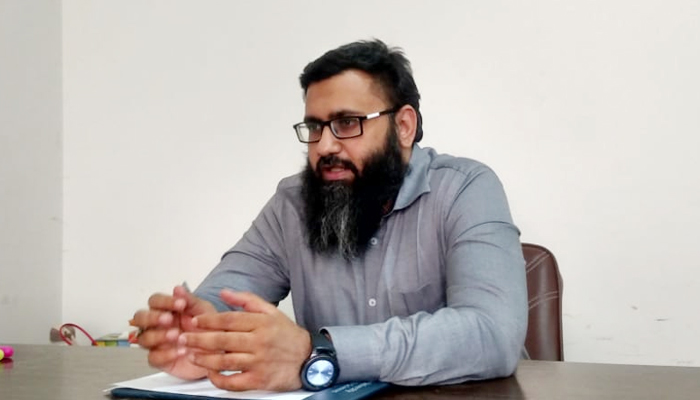Health expert urges Pakistanis to avoid 'regret', observe social distancing
Dr Noori's statement comes at a time when the nation's tally of COVID-19 patient is nearing 300
Isolation is the best way to prevent the coronavirus from spreading in the country, said Associate Professor of Microbiology at Dow University Hospital, Dr Yahya Noori.
Dr Noori's statement comes at a time when the nation's tally of COVID-19 patient is nearing 300, according to official figures.
Speaking to Geo.tv on Wednesday, Noori said: “We as a nation need to understand the crucial importance of isolation during these times. We are not taking it seriously right now, but when it spreads and affects a large number of people, we will regret it.”
The country-wide coronavirus tally reached 297 today, with 208 in Sindh, 33 in Punjab, 19 in Khyber Pakhtunkhwa, 16 in Balochistan, seven in Islamabad Capital Territory, 13 in Gilgit-Baltistan, and one in AJK.
While discussing the disease's impact on immuno-compromised people, Dr Noori said that “smokers are more prone to getting attacked by COVID-19 as their lungs are already susceptible to infections.” It could be lethal, he warned.
“Coronavirus is a contagious disease — it can travel from one place to another — it can go from one person to another. The behavior of contagious disease is so that, if I have a disease and I meet people, it is likely to be transferred to other people," he said while describing how the virus is transmitted.
"If the infected person is susceptible to having an infection then he might exhibit symptoms, otherwise he can simply behave as a carrier, and might transfer the disease to other people,” he noted.
Responding to a question on how people can differentiate the common flu from the coronavirus he said: “It’s very tough to differentiate the symptoms, as everyone is coughing and sneezing. You don’t know whether you have the virus or it’s just because of environmental change.”
“In general, symptoms appear in a week and they start worsening and might lead to respiratory failure. Otherwise, you might get sick and not even know (as you have a strong immunity system), but you might transfer it to other people who are susceptible to it,” he noted.
Emphasising on the need for social isolation he said that so far “we know that the virus’ mortality rate is 2%."
"If we translate that in terms of Karachi's population, we’ll nearly have 400,000 people affected and we know that our available health facilities cannot cope with such a huge number.”
“The only way to deal with this issue is to promote social isolation,” he urged.
Noting that the virus mostly lasts for 15 days he said: “It cannot survive on dry surfaces. Its survival time also varies from person to person.”
When asked which organ the disease affects the most, Dr Noor said that it has the worse impact on a person's lungs. "It goes into your nose and then it goes inside your lungs and causes pneumonia and can ultimately lead to respiratory failure."
Dow University Hospital, with all its available resources has taken efficient steps to combat the spread of COVID-19. The facility has taken the required measures to set up an isolation room and the labs are working diligently to cope with the outbreak.
Globally, 164 countries have been affected by the virus, with more than 8,400 people having died and more than 196,000 infected by it as it spreads rapidly to new territories.
The epicentre of the outbreak has now shifted to Europe, which is recording a rapid rise in new cases every day.
— Originally published on Geo.tv
-
Security forces gun down 30 terrorists in multiple IBOs in KP: ISPR
-
MQM-P calls for new province in Sindh
-
US report validates Pakistan military edge over India: PM
-
Banned TTP poses serious threat to Pakistan security: UNSC panel
-
CM Afridi clarifies remarks on by-poll after ECP requests army deployment
-
Dubai sees 3.2m Pakistani passengers in 2025 as airport sets new milestone
-
Security forces kill 23 Indian proxy terrorists in KP's Kurram
-
Pakistan to construct island to boost oil exploration: report













